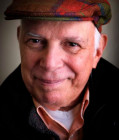Reclaiming Democratic Populism
Connect with the author
Today as well as in the past, populism can be found on both the right and left of American politics. During the 2008 election, Sarah Palin issued what the late journalist David Broder called “a pitch-perfect recital of the populist message.” And in his recent book Our Divided Political Heart, the liberal-leaning commentator E.J. Dionne calls for “a new seriousness about what Populism meant for our past and means for our present.”
Dominant definitions convey populism as rhetoric posing an opposition between virtuous citizens and elites and “others” who supposedly threaten to take away the rights, values, property, or voices of the sovereign people. In these terms, populism amounts to little more than a Manichean language of “people” versus “evil elites” (sometimes backed by evil minorities or subversives). Yet definitions which treat populism as mere rhetoric fail to explain why and how some movements called populist are democratically-oriented and inclusive and pluralist in character, while others are parochial, nostalgic, or demagogic. The best historical scholarship and political theory have identified several elements in populist politics that enhance democracy and inclusion.
Cultural Organizing
Populist movements with inclusive and democratic features engage in what can be called cultural organizing. They take seriously as locales for political struggle culture-shaping institutions like opinion journals, news and social media, motion pictures, and arts and entertainment. Practitioners, in the American context, advance understandings of national identity, definitions of the American people, and conceptions of the American dream that recognize social conflicts even as they stress democratic, cooperative and egalitarian ideals such as “liberty and justice for all” or “all are created equal.”
For example, my scholarship has explored such cultural organizing in the movements of the New Deal during the 1930s. Until McCarthy Era backlashes put a stop to their efforts, cultural workers in the film industry changed popular understandings of the American Dream. Inspired by struggles for racial and economic justice, as well as by the international fight against fascism, journalists, artists, scholars and educators sought to deepen the meaning of American democracy. As Michael Denning shows in his book The Cultural Front, the concept of “the people” became central to new explorations of U.S. history and to reworkings of the meanings of race, ethnicity, and regional identities. Writers and artists moved from featuring harmony and national unity to probing social tensions that became evident in the era of the Great Depression and World War.
A Different Kind of Politics
Democratic populist movements also embody older understandings that view politics not as ideological warfare, but as boundary-crossing engagement with others who may be radically different.
- Although the Civil Rights movement of the 1950s and 1960s is usually understood only as a fight for the rights of African-Americans, poor whites were also involved in the citizenship education programs sponsored by the Southern Christian Leadership Conference – a little known chapter of the movement described in Dorothy Cotton’s recent book, If Your Back’s Not Bent. As a college student back then, I was assigned by Martin Luther King himself to organize poor whites along such lines.
- In similar ways, architects of modern community organizing like Saul Alinsky and Geno Baroni have viewed community organizing as a way to bridge divides of race, ideology, and religion. This kind of democratic populist politics stresses democratic education and the development of a broad and diverse set of leaders oriented to community empowerment.
Public Work to Create Democratic Power Centers
Populist movements with a democratic and inclusive character develop independent power centers through which people gain capacities to shape public discussions and outcomes. An emphasis on cooperative and community-based economic activity, often by small property holders, marks populism as an alternative to both laissez faire capitalism and large-scale social democratic politics to build modern welfare states.
- During the heyday of the Populist Party in the 1890s, black populists struggled to protect family farms and train black professionals. Such professionals were to become W. E. B. DuBois’s “educated tenth,” men and women who could build institutional foundations for the struggle for freedom – including schools, colleges, church congregations, businesses, and labor unions like the Brotherhood of Sleeping Car Porters.
- A similar process of populist education took place in land grant colleges. In the early twentieth century, they seeded U.S. states and communities with “citizen professionals,” who not only pursued academic research but also community-building and civic empowerment.
New Frontiers for Citizen-Oriented Experts in the Information Age
Today, there are fresh possibilities for populist organizing in professional and education settings. Contemporary professionals of all kinds are experiencing threats to their autonomy from outside authorities whose goals may have more to do with cost-cutting or enhanced managerial authority than with pursuit of the substantive values professionals have been educated to further. Examples range from the imposition of standardized tests in elementary and secondary schools, to the arbitrary elimination of entire liberal-arts disciplines in public universities, to the application of time management techniques in health delivery organizations. Like farmers who once battled for family farms, many groups of U.S. professionals now face the prospect that they will either become the architects of new practices or the victims of arbitrary standards and practices imposed from the outside. Professionals have interests in building partnerships with lay citizens.
Read more in Harry Boyte, “Introduction: Reclaiming Populism as a Different Kind of Politics.” The Good Society 21, no. 2 (2012); and Luke Bretherton on politics, Gerald Taylor on independent centers of power, and Rom Coles on populist organizing in today’s colleges and universities in the same issue.
